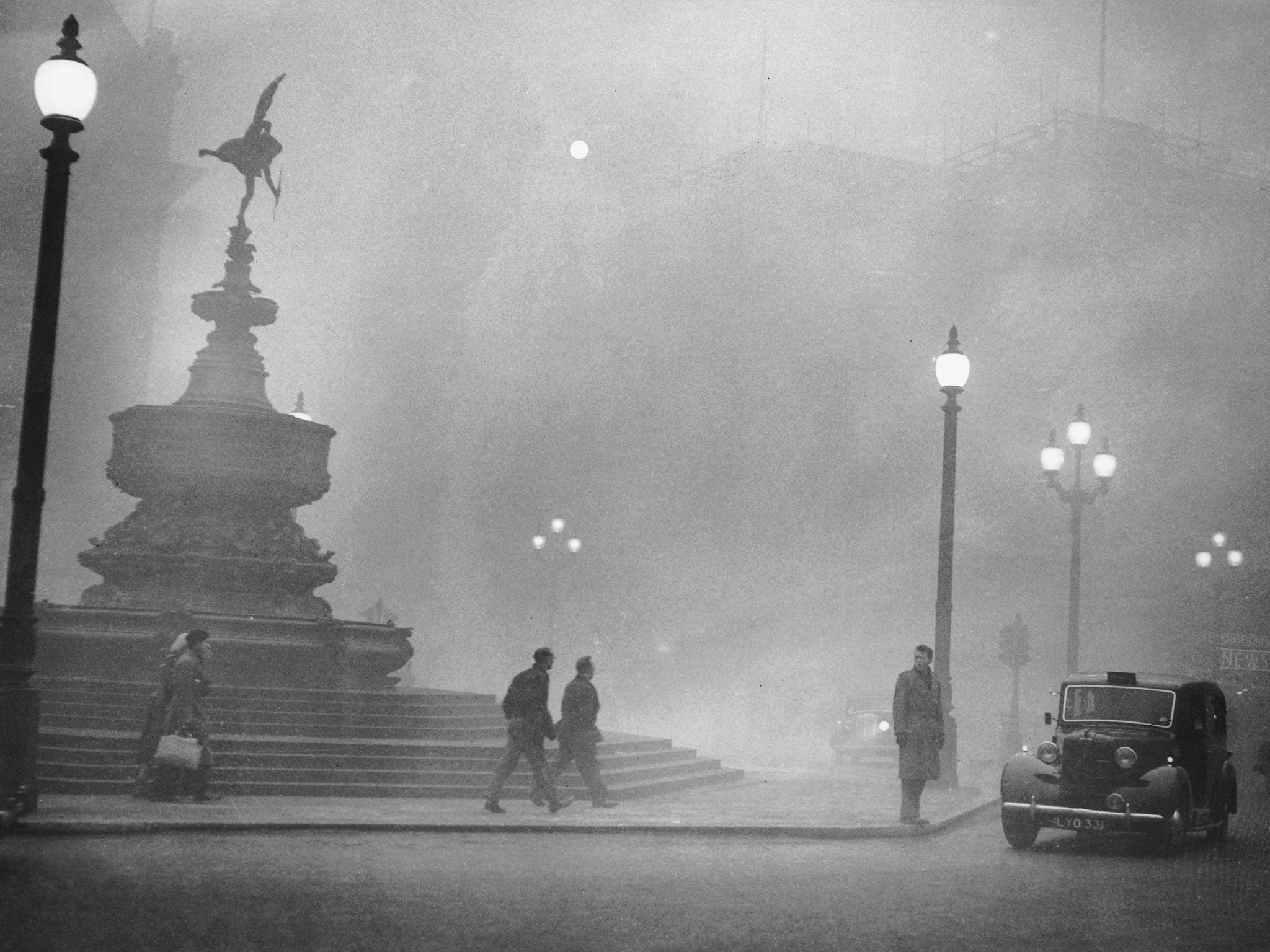UK smog: You thought this was bad? Take a look at the Great Smog of 1952
The thick toxic fog that filled London in 1952 masked entire buildings and reduced visibility to a couple of metres

While - unlike David Cameron seems to think - the smog that has clouded much of Britain this week is testament to the dangerous levels of air pollution the UK faces, it ain’t got nothing on the Great Smog of ‘52.
On Wednesday, as the thick haze settled over London, the capital’s Ambulance service reported a 14% spike in call outs to people with breathing problems.
By contrast, in 1952, up to 12,000 people died and over 100,000 were made ill as a result of the five day pollution filled thick fog that filled London’s streets, reducing visibility to just a couple of metres and masking entire buildings.
The 1952 smog, caused by emissions from low grade post-war coal being trapped by an anticyclone that settled over the capital, directly led to the creation of the Clean Air Act 1956, which introduced a number of measures to reduce air pollution.
Unfortunately in the modern day, despite the visibility and intensity of smog being much reduced, up to 29,000 people in the UK still die per year because of air pollution, according to the European Commission.
This time around, again human actions are much to blame - rather than simply being "a naturally occurring weather phenomenon" caused only by Saharan dust, as David Cameron told the BBC, the smog is a combination of dust and toxic emissions from the UK and Europe.
Despite a number of warning over the last 15 years, the UK has continued to fail in reducing levels of deadly nitrogen dioxide in the atmosphere - something that, in February, prompted the European commission to launch legal action.
Join our commenting forum
Join thought-provoking conversations, follow other Independent readers and see their replies
Comments